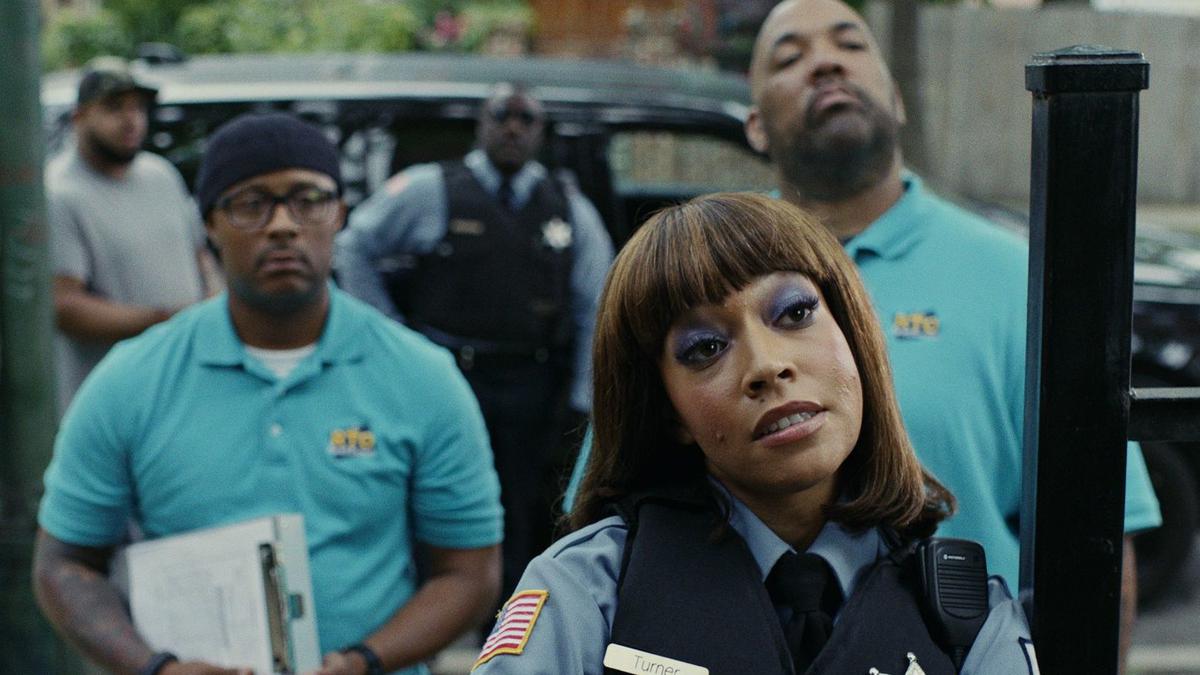At around 6 in the evening, A.R. Rahman excuses himself from a conversation. Inside his ARR Studios at Chennai’s Kodambakkam, the Oscar winner swiftly paces from one block to another, his mind pre-occupied, only briefly pausing to smile at a few people on the way. Clearly, the man has to be someplace soon.
Someplace is just three floors above. Here, amidst many instruments that have been played in superhit albums, is silence.
He requires that for his prayers, a time that is sacred, a time spent in solace. His assistant tells me, “It’s his prayer time. No one disturbs him for a while.”
Watch | In conversation with AR Rahman on his upcoming sufi music concert
Sometime later, the Mozart of Madras emerges from the elevator, clad in a maroon kurta and sporting a smile. The composer is in great spirits, which soften when we enquire about his son Ameen, who escaped a major accident on the sets of a song shoot a week ago. Rahman says, “He is shaken. He tells me, ‘Appa, I can’t sleep well. I feel that the fan might fall on me’.”
As we wait for the interview to begin, Rahman hums a line from ‘Adiye Sonali’, a one-minute independent music video launched by his son in January. Good things await Ameen; he has also sung a song in upcoming Simbu-starrer, Tamil film Pathu Thala under his father’s composition.
AR Rahman during a previous Sufi concert
| Photo Credit:
Nishant Matta
Good things also await Rahman. He is gearing up for a concert in Chennai this weekend, but it will be very different from the head-banging, familiar rhythms that draw huge crowds for his every live performance. At Wings of Love, scheduled this Sunday evening at Nehru Indoor Stadium, the composer will perform a “Sufi concert”. “There will be no ‘Muqqabula’ or ‘Chaiya Chaiya’, but “there will be numbers like ‘Kun Faya Kun’,” he informs. “I wanted to do a bigger concert but that couldn’t happen. However, I realised there are many fans for numbers like ‘Kun Faya Kun’ and ‘Khwaja Mere Khwaja’, and thus we have this.” This concert is to raise awareness and in aid of the ‘Save Lightman’ fund, to recognise lightmen working in various film industries. “We’ll get a blessing from everyone that way.”
This is A.R. Rahman the Oscar-winner talking, but in the late Eighties, he was a just boy named A.S. Dileep Kumar. So, when did he get drawn to the world of sufi music? “I was not a fan of qawwali,” he admits candidly, “In 1991, a friend of mine, Sarangan, introduced me to a record of Nusrat Fateh Ali Khan, and I was like, ‘Who is this? What is this music?’ It changed my whole paradigm of thinking. Later, I met Nusrat and learnt a few lessons, but then he passed away. Then, Khalid Mohammed came to me and said that he wanted a song like ‘Muqqabula’. I didn’t want to do that yet again, but learnt that he was planning a qawwali, and I wanted to do that.”
Though Rahman was initially nervous about experimenting with a completely new genre, that conversation did result in a memorable song: ‘Piya Haji Ali’ ( Fiza) in 2000.
During a visit to Ajmer, Rahman says a khadim asked him to compose something for Dargah Khwaja Saheb, which ultimately made its way into Ashutosh Gowariker’s Jodhaa Akbar (2008) . Another favourite number for fans is ‘Kun Faya Kun’ from Imtiaz Ali’s Rockstar (2011) ; the comments on its YouTube video even go to the extent of likening it to therapy. Rahman explains, “Whether it’s a bhajan or a gospel or a sufi track, it is the sincerity that the listener hears. When I listen to a ‘Vaishava Janato’, the sincerity is what makes that song. You don’t need a two-hundred piece orchestra track for that.”
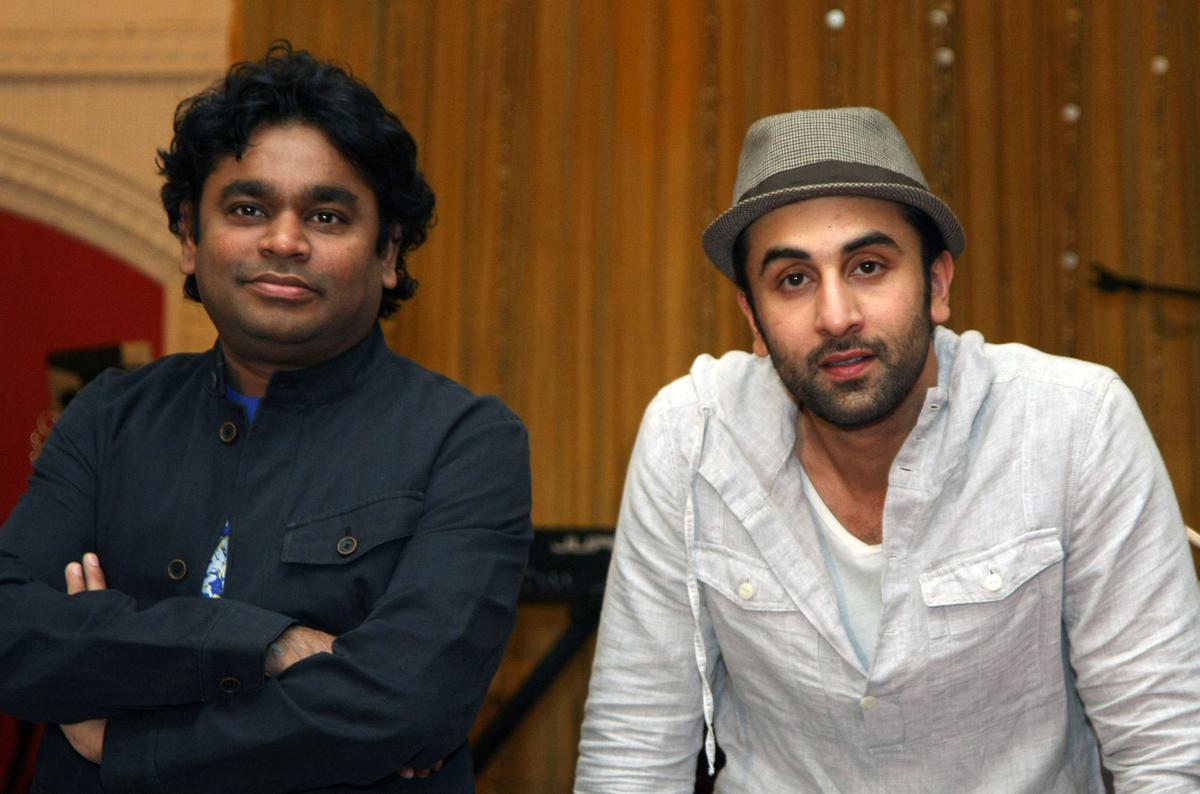
A.R. Rahman with actor Ranbir Kapoor during the promotions of ‘Rockstar’ in 2011
| Photo Credit:
AFP
A voice for hope
Though other popular performers, including Javed Ali and Sivamani, will be part of this sufi concert, Rahman the singer will undoubtedly be the big draw. In a 2018 interview, he told The Hindu, “My wife keeps asking me to sing more in films but I dodge it as much as possible…” Things have changed vastly since then; singer Rahman is a constant feature in almost all his recent albums. “During the U.S. tours, I had a lot of time to practise. In the bus, in the car… I would just put on the tanpura and sing. All the singers I work with — young or old — are better than me. I get inspired by them, and push myself to sing better.”
He is also pushing himself on other creative fronts; the last few years saw him conceptualising and writing 99 Songs and Le Musk, both of which have added a dimension to him beyond music. After working with multiple directors and producers, how does it feel to be in control of an entire project? “Terrifying,” he laughs, “Sometimes, I feel alone and there’s no one else to say, ‘What if you make a bad decision?’ And I think I might have made some bad decisions — in 99 Songs, for instance, people loved it as a theme but we pushed it too extreme to people in the sense that we showcased the lead character’s entire journey. Instead of having five hit songs, we tried to see how he evolved as a composer and the errors he made. It was satisfying to do something that tried to be honest to the script. It was a gamble, but it was worth taking.”
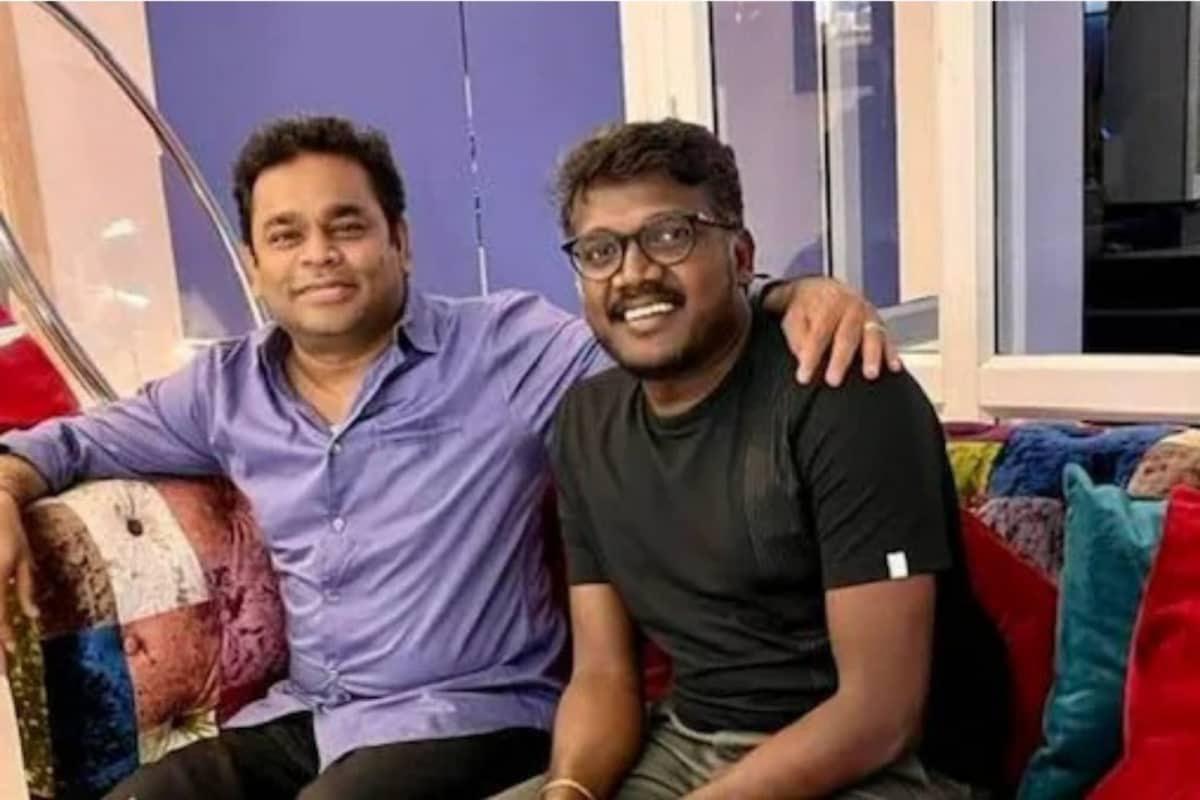
AR Rahman with Mari Selvaraj during the recording session of ‘Maamannan’
Besides working with regulars such as Mani Ratnam, Rahman is keen to forge newer collaborations, something that is evident in Tamil projects like Cobra (Ajay Gnanamuthu), Pathu Thala (Obeli N Krishna), Ayalaan (R Ravikumar) and Maamannan (Mari Selvaraj). “We learn from each other. They don’t have the luggage of the previous generation, and the enthusiasm in their eyes is infectious. It makes me work harder.” Mari Selvaraj, who wowed Tamil cinema with Pariyerum Perumal, is someone Rahman describes as a “different kind”. “I was amazed with his choice of music. He’s doing great service for people from underprivileged backgrounds.”
What the Oscars mean
“We missed the bus during ‘Jai Ho’. We should have cashed in on its success, considering it was a global hit, and should have raised our profile more. Now, with ‘Naatu Naatu’, we have another chance; the whole profile of India’s music and cultural side can change. People are going to be like, ‘What else has this composer done? What else has AR Rahman done?’ Also, India has long been associated with Bollywood; but now, RRR is a Telugu film and The Elephant Whisperers is shot in Tamil Nadu. We are so bundled with talent, and we deserve this.”
Being a celebrity
While on the move, Rahman is besotted with requests and selfies, something that he takes in his stride. Celebritydom does come at a price indeed, and the composer smiles when I tell him I did something he cannot: walk across the street to buy biscuits while I was waiting for him. “They’d eat me instead of the biscuit if I did that,” he guffaws, “But, we get other extraordinary things to do; like travelling constantly. When you win something, you lose something.”
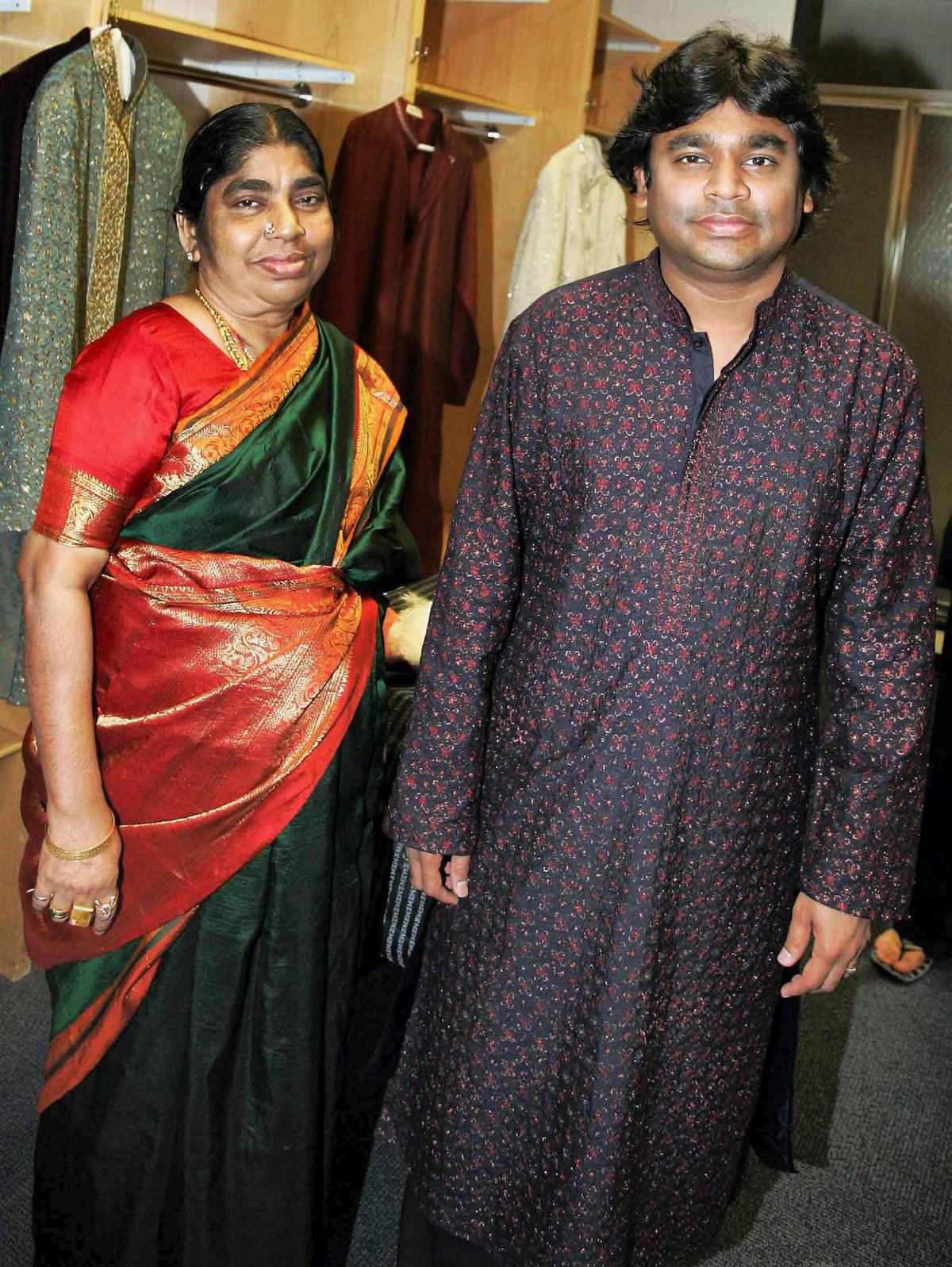
AR Rahman with his mother Kareema Begum
| Photo Credit:
PTI
The rare times when he is alone, he says he often thinks about his mother, Kareema Begum, who passed away in 2020 and was the biggest support in his musical journey. He chokes a bit when I mention her, and says, “Even when she passed away, it was a strange reaction for me. I knew she was suffering — with needles constantly poking at her body —- and somewhere felt that it was a relief that God had given her. But then, I was performing at a concert, and saw an empty seat, and remembered suddenly how she used to attend my concerts with a big thousand-bead prayer necklace. It hit me very hard when I realised that, ‘Oh my god, I have lost my mother’.”
Rahman points out that everything he has today is because of his mother. “All that stuff you see around is because of her one decision to put me into music. While all other parents back then were saying things like, ‘Become a doctor and then do music,’ she was saying, ‘Do music.’ That’s genius.”
AR Rahman’s Sufi concert will take place on March 19 at Nehru Indoor Stadium, Chennai. For details, log on to https://wingsoflove.in/
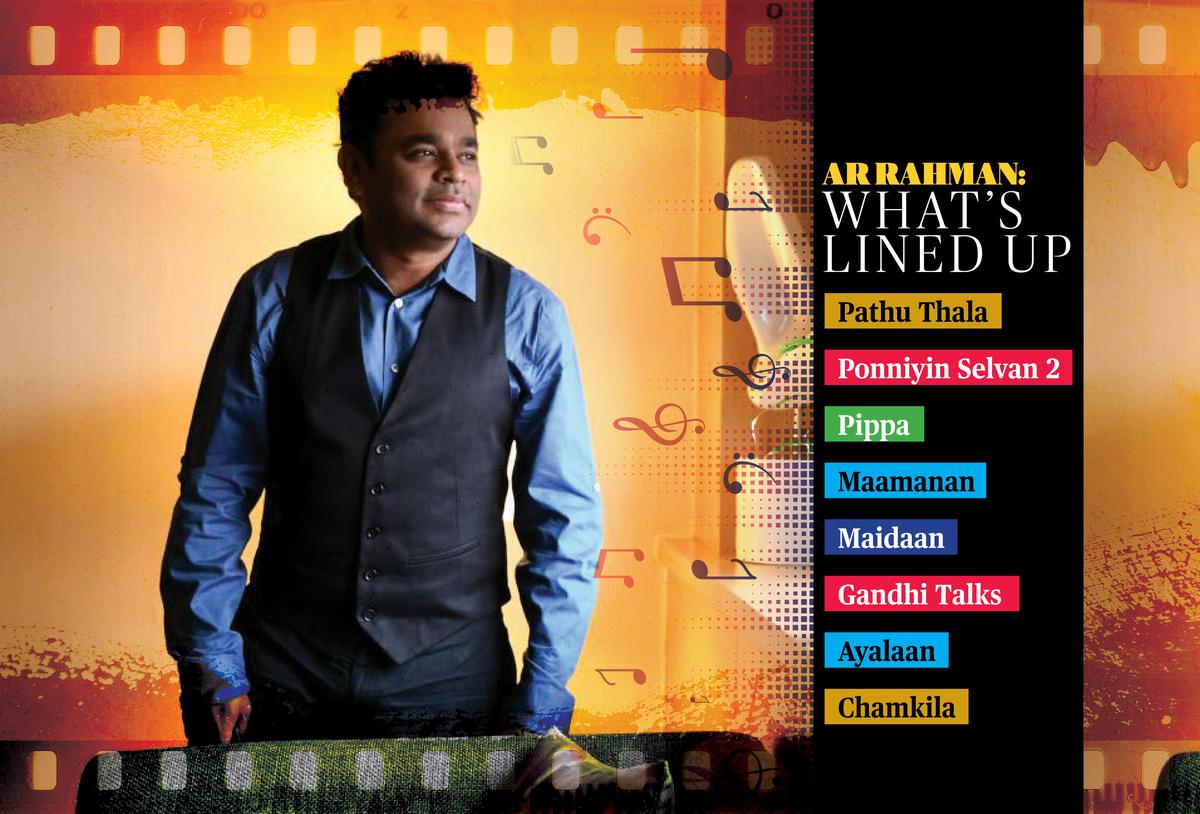
Graphic: Albert Francis, Photo: Nagara Gopal


.jpg)

